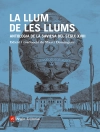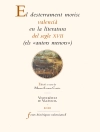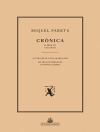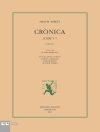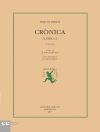This is the story of the decline and fall of an empire, a region devastated by war, and a world stage fundamentally transformed by the Russian Revolution. Bauer’s magisterial work — available in English for the first time in full — charts the evolution of three simultaneous, overlapping revolutionary waves: a national revolution for self-determination, which brought down imperial Austro-Hungary; a bourgeois revolution for parliamentary republics and universal suffrage; and a social revolution for workers’ control, factory councils, and industrial democracy.
The brief but crowning achievement of Red Vienna, alongside Bauer’s unique theorization of an “integral socialism” — an attempted synthesis of revolutionary communism and social democracy — is a vital part of the left’s intellectual and historical heritage. Today, as movements once again struggle with questions of reform or revolution, political strategy, and state power, this is a crucial resource. Bauer tells the story of the Austrian Revolution with all the immediacy of a central participant, and all the insight of a brilliant and original theorist.
विषयसूची
First Section: War and Revolution
The Southern Slavs and the War
The Czechs and the Empire
The Poles and the Central Powers
German Austria in the War
Second Section: The Upheaval
The Formation of the “Nation-States”
The Disintegration of the Empire
The German-Austrian Republic
National and Social Revolution
Third Section: The Predominance of the Working Class
Revolutionary and Counter-Revolutionary Forces
Between Imperialism and Bolshevism
The Revolution in the Factories
The State and the Working Class
Fourth Section: The Period of Equilibrium Between Class Forces
Economic Upheaval and Social Regrouping
The Struggle for Republican Institutions
The Battle Against the Counter-Revolution
The People’s Republic
Fifth Section: The Restoration of the Bourgeoisie
The Monetary Catastrophe
The Geneva Treaty
The Outcome of the Revolution and the Tasks of Social Democrac
Index
लेखक के बारे में
Otto Bauer (5 September 1881 4-July 1938) was the leading figure of the Austrian Social Democratic Workers Party. An early inspiration for the New Left and Eurocommunist movements in later decades, his theories of imperialism and the national question, as well as his practical work building a mass organization, made him a key figure in the Second International and then in attempts at re-integrating the social democratic and communist wings of the labor movement.
Walter Baier, an economist in Vienna, was National Chairman of the Communist Party of Austria (KPÖ) from 1994 to 2006. He was an editor of the Austrian weekly Volksstimme and from 2007 has been Coordinator of the network transform!Europe, a network of 36 think tanks and educational organizations from 22 European countries, which is recognized as the associated political foundation of the Party of the European Left (EL).


